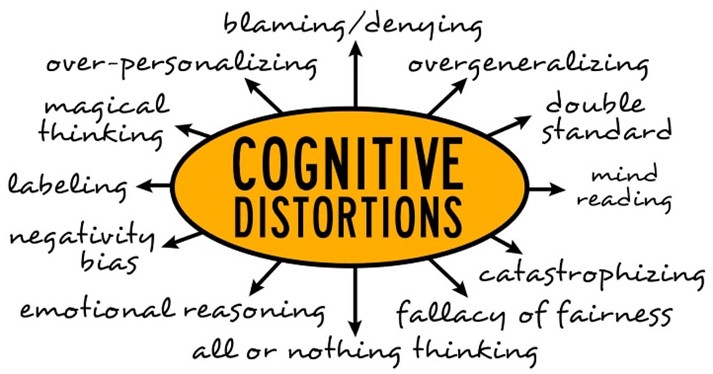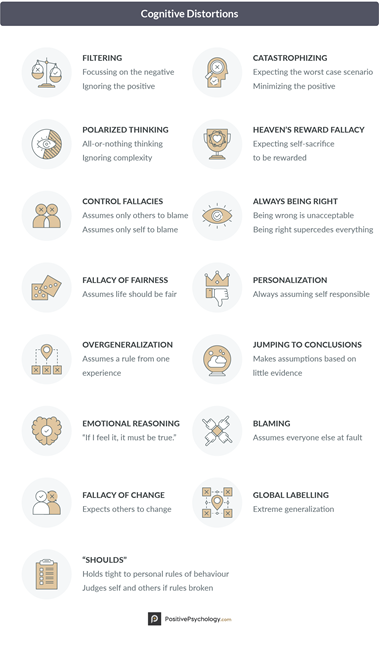Stinkin’ Thinkin’ Thoughts

The Cambridge Dictionary defines “Stinking Thinking” as a bad way of thinking that makes you believe you will fail; that bad things will happen to you; or that you are not a very good person. Formally known as Cognitive Distortions by mental health specialists. Cognitive Distortions are just patterns of thinking and perceptions that tend to be false about ourselves and the world around us. An example would be if a Victim and/or survivor may feel some sort of guilt about losing a loved one or having a loved one injured in a crash. They might have felt that they could have done more to Victims and survivors may even have thought that they should have done something to prevent the crash from happening. Things like, “I shouldn’t have asked them to go to the store to pick up more party supplies.” Or “I should have been in that that car so that my loved one wouldn’t get injured.” These are called should statements. Another example is Fortune Telling, when someone believes that they can predict their own future. A victim might be fresh in their grief journey and feel like that they will no longer be happy again and that there’s no reason to enjoy life anymore since their loved one has passed. Though this is not uncommon to feel and think this way while grieving, it is a cognitive distortion.
Here is a graphic from Positive Psychology that illustrates all the 15 Cognitive Distortions

It’s important to note that just because a thought is either repetitive or pops up in your head does not mean it is true. So how do we get rid of cognitive distortions? This might be a hard pill to swallow, but we can’t. All our brains do it, even when grief and loss are not associated with the thought, it can happen at any point on our lives. However, it’s crucial to identify all the different types of distortions, because if you can name and recognize the distortion, you can look at these thoughts more objectively and tame them. If you feel comfortable, you can write and or record your thoughts and feelings and play back to identify a distortion. Also, it is okay to seek additional support from mental health professionals if you prefer to talk to someone who can give you more insight and resources.
More information about Stinking Thinking:
https://www.familycentre.org/news/post/10-common-negative-thinking-patterns-and-5-steps-for-change
https://psychcentral.com/lib/the-top-10-types-of-stinkin-thinkin#1
